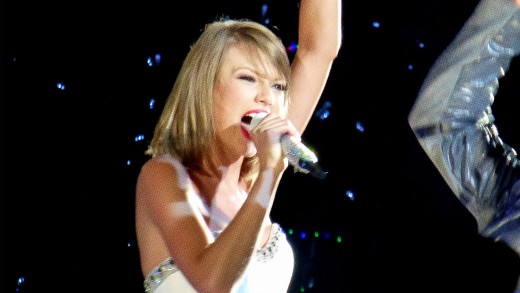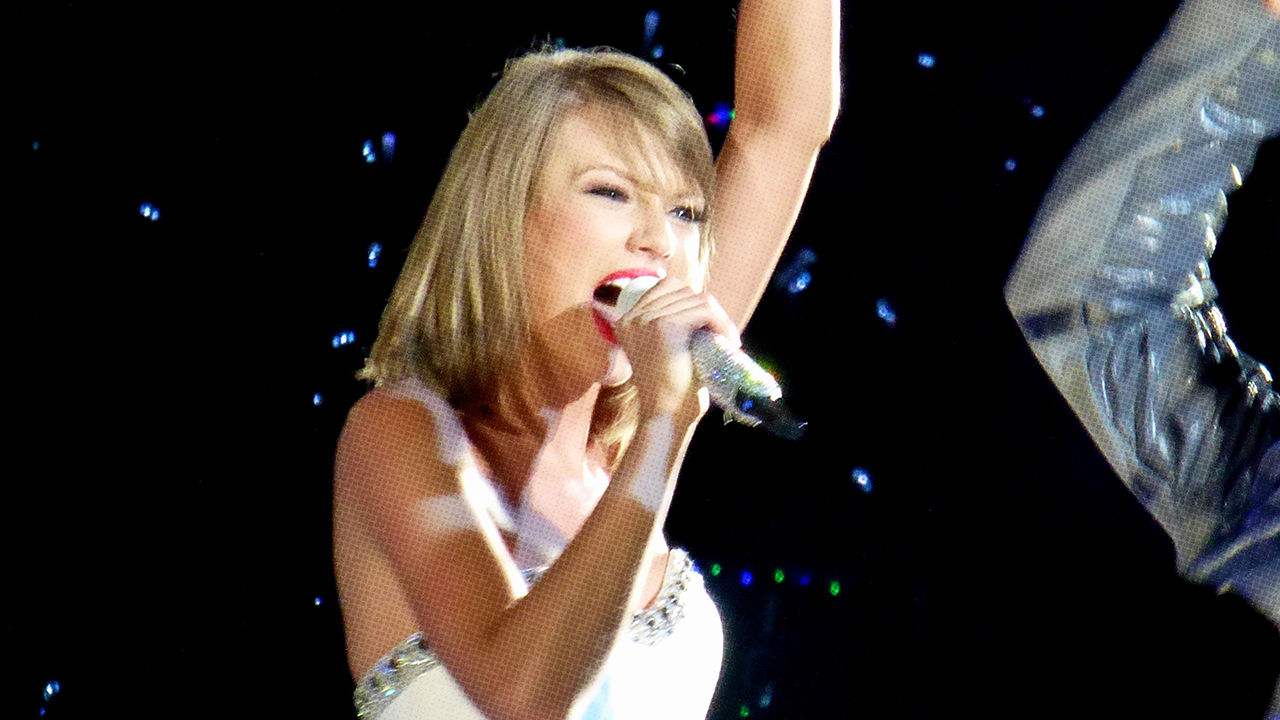Taylor Swift: Music Industry Savior Or Hypocrite?
Taylor Swift is powerful enough to sway Apple, but not everyone is singing her praises.
If you want to set the Internet on fire, just sprinkle some Taylor Swift into a headline, add the word “Apple” and stir in some tension. That’s what happened at the beginning of this week, as the world’s biggest pop star went up against the world’s biggest technology company and somehow swayed the giant into changing course on its plan to run a three-month free trial of Apple Music without paying artists.
But while Tay Tay was being hailed by many as a champion of artists in a still-tumultuous, uncertain industry, not everybody is sold on that popular, click-generating narrative.
The crux of Swift’s argument—that it’s insane for the second-most-profitable company on the planet to withhold royalties from struggling artists, even briefly, while it enters the crowded music streaming market—is a sound one that hardly anybody contests. But just how much praise Swift deserves is subject to debate.
In a mini-tweetstorm unleashed (June 25, 2015), Pandora cofounder and former CTO Tom Conrad called the Swift/Apple exchange “mostly theater,” adding that there’s “nothing here to suggest Apple treats artists more fairly than anyone else.” As Conrad points out, Apple’s decision to actually pay artists during the free trial simply puts Apple in line with every other legitimate streaming service, and thus is nothing to celebrate.
Conrad also pokes a few holes in the credibility of Swift’s position, pointing out that that she never pulled her music from YouTube, a massive source of music that is free to users, much like the free tier of Spotify’s service that Swift so passionately dislikes (and her main justification for pulling her entire catalog from Spotify). At the same time, he points out, Swift has never taken issue with the lack of royalties paid by terrestrial radio, a format that was instrumental in propelling her to superstardom (the radio royalty system pays songwriters but not recording artists—an issue that is still being wrestled over). This argument is familiar territory for Conrad, whose former company led the charge in trying to reshape the royalty rates for Internet radio to put them more in line with Pandora’s traditional counterparts.
Others have likened Swift’s rant against Apple to the Metallica drummer Lars Ulrich’s famous campaign against Napster 15 years, a comparison that either paints Swift as a Luddite or Ulrich as a visionary, depending on your perspective.
Writes Robert Pasbani on Metal Injection:
The sentiment is basically the same. Artists need to be paid. How come people weren’t calling for Lars to be president? Instead, Metallica were vilified, seen as attacking their fan base… when in reality, they saw the writing on the wall. The music business eventually caved in on itself and the only solution was “well if people have access to every song anyway, let’s at least legitimize it and make it legal.” And thus, this has lead to streaming services, that do offer some sort of payment to artists.
The analogy is a bit rough, considering Napster didn’t offer any revenue to artists or labels, while Apple’s proposed royalty-free period would have only lasted three months. But given the even limited historical parallel, Pasbani argues, glorifying Swift’s success in swaying Apple might be a little excessive.
Perhaps the most biting counter-criticism of Swift came from PetaPixel, which posted a concert photography contract used by Swift’s management and pointed out that the pop diva’s passion for artists’ rights evidently does not trickle down to photographers:
Now, forgive me if I’m wrong, but if you take points 2 and 3 in that contract (which is provided to photographers who need to agree to those terms before they are allowed to do their job in photographing you for editorial outlets), it appears to be a complete rights grab, and demands that you are granted free and unlimited use of our work, worldwide, in perpetuity.
You say in your letter to Apple that “Three months is a long time to go unpaid”. But you seem happy to restrict us to being paid once, and never being able to earn from our work ever again, while granting you the rights to exploit our work for your benefit for all eternity.
Youch.
In response to these criticisms, Swift’s management issued a statement clarifying that the copyright of all photos belongs to the photographer and that her current tour offers photographers “the opportunity for further use of said photographs with management’s approval.”
Agree with her or not, you have to admit: The fact that a pop star like Swift has such sway over a company as massive (and occasionally hard-headed) as Apple is pretty incredible. If only Taylor Swift were as passionate about longer iPhone battery life as she is about artist royalties, we’d all happily pave her way to the White House.
Fast Company , Read Full Story
(136)














